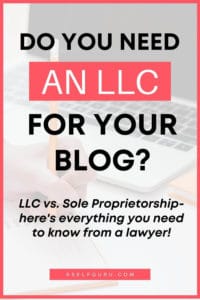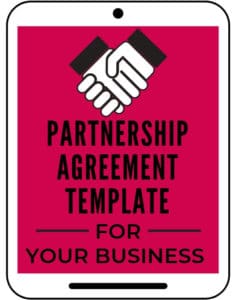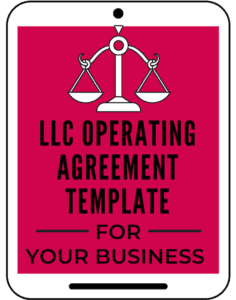Here are some important tax tips for the self-employed from my personal and professional experience as a lawyer.
If you are self employed then you must know about these tax tips and self-employment taxes.
Have you started your own business?
Remember when you were an employee, you did not have to worry about self-employment taxes because your employer took care of the taxes for you but when you start your own business, you also have to start thinking about:
- what are self-employment taxes
- how to file self-employment taxes quarterly
- when are self-employment taxes due
- what business tax deductions you can claim
and more!
It’s always best to use these time saving tax forms, consult a CPA or tax lawyer for more information regarding below and your personal circumstances.
Table of Contents
1. Estimated Self Employment Taxes
When you are self-employed, you pay taxes as you go. Unlike employees, who have their income, social security, and Medicare taxes withheld from their pay by their employer, you have to pay these taxes directly to the IRS yourself.
You have to estimate your tax payments quarterly and make payments 4 times a year using Form 1040-ES.
The due dates are April 15, June 15, September 15 and January 15.
If you think you will owe $1,000 or more in taxes then estimated taxes must be paid. Otherwise, you could face a huge penalty when it’s time to pay your annual taxes.
2. How to Pay Quarterly Self Employment Taxes
There are 4 ways to pay your taxes when you are self-employed. I prefer everything electronic because it’s easy and quick but it’s up to you.
You can pay electronically, using the government’s EFTP (Electronic Federal Tax Payment) system, by mail, by electronic withdrawal from your bank account and lastly by your credit or debit card.
If you pay by mail, you file using IRS Form 1040-ES. You should already have your name, address, social security number or EIN if you have one, and the amount of the payment. You will need this information for Form 1040-ES.
My preferred method is the EFTPS system which makes it easy to send payments directly from your phone, computer software, Internet and it’s free to use.
The payments are debited from your bank account but you must first sign up with EFTPS before you can start using this option. You can sign up by clicking here.
If you want to use the electronic withdrawal from your bank account option then you can do so by using the IRS’s direct payment option.
This is also free and you can easily have your estimated taxes paid directly from your bank account. You will also receive confirmation right away that your payment is made to the IRS.
Next is paying through your credit or debit card. I am not a fan of this because it’s not free. You have to go through a third-party service to make the payment and as you can imagine, there’s a fee based on the amount of your payment.
This fee goes to the third-party company which enables this service for making your payment. You can pay through this method by clicking here.
Here’s a great book to help you with self-employment taxes and check out 18 best books on taxes here.
3. Self Employment Tax Deductions
As a self-employed person, you can claim several tax deductions for your business.
What is a tax deduction? A deduction is an expense directly related to your business for a reasonable amount, which is ordinary and necessary that you can subtract from your gross income to find out the amount you will be taxed upon.
The more deductions you have, the lower your taxable income will be but you must keep track of all your expenses from day one! So when it’s time to file your taxes, either you or your tax expert can easily go through the records to determine what deductions you actually qualify for.
Some of the ways to keep track of this is by keeping a spreadsheet on your computer, a diary, or log with dates, times and reasons for the item you purchased for your business.
Why should you keep clear track of these expenses? In case you are audited by the IRS to check your deductions, you must be able to show the documentation, and it will be a lot easier to do that if you had kept great records.
Here are some common business tax deductions you can claim:
- Business start-up costs such as business name registration, website hosting/domain, license fees, and so forth
- Attorney or accounting fees for your business. Let’s say you hired an attorney to draft your legal documents for your business, you can deduct those.
- Advertising and marketing costs
- Renting or leasing vehicle costs, machines, equipment or other property used in your business
- Education expenses such as professional classes you took in relation to your business
- Health insurance for yourself and your family
- Business insurance
- Paypal and/or credit card transaction fees you may
- Professional license fees
- Business travel, meals and entertainment
- Your home office
- Office supplies
Learn about more tax deductions here. This is by no means the complete list and if you are unsure, you can still keep track of all your expenses in your log and consult with your accountant when it’s time to do your taxes.
Here’s 475 tax deductions guide for self-employed individuals and businesses.
4. Your Home OFFICE TAX DEDUCTION
If you work from home, your home can become your principal place of business allowing you to claim a home office tax deduction on your taxes. This is perfect for bloggers!
For example, website designers, freelance writers, computer programmers, virtual assistants, consultants, graphic designers, telemarketers and other self-employed people working from home can use a home office tax deduction.
Now in order to qualify for this home office deduction, you have to regularly use your home for your business; it’s not enough to just work one or two months out of the year from home and then try to claim this tax deduction on your taxes.
In other words, make sure your use of the home office is regular and continuous; not just a hobby in which you engage in whenever you feel like it. You should also make sure that your home office area is used exclusively for the business, not for your personal work.
So it’s a good idea to designate an area of your house or a room just for business purposes.
5. LEGAL ENTITY FOR BUSINESS AFFECTS YOUR TAX LIABILITY
When you are self-employed, the type of legal entity you choose for your business affects your tax liability. This is one of the most important decisions you’ll have to make and has a big impact on how you’ll be taxed by the IRS.
Good thing is that you can always switch to another legal entity for business later if you decide one works better for you than the other. For example, you can start as a sole proprietor and then incorporate and form an LLC later once you start making more money.
Here are common types of legal entities for business –
-
Sole proprietor
This is a one-owner business. It’s the easiest legal entity for organizing your business because you don’t have to do much tax paperwork. You are automatically a sole proprietor if you don’t incorporate or have a partner.
Let’s say you are running a one-person business and haven’t incorporated or formed an LLC (limited liability company) then you are classified as a sole proprietor.
For tax purposes, you and your business are considered one and the same and you don’t file tax returns separately.
You use IRS form 1040 to show all your income and losses as part of your personal tax return. Keep in mind even as a sole proprietor, you still have to pay quarterly estimated self-employment taxes for social security and medicare on your net self-employment income four times a year.
The drawback of a sole proprietorship is that your personal assets are not separated from your business. That means you are personally legally liable for your business debts and if your business gets sued tomorrow, your personal assets like home or car are not protected.
Learn more about LLC vs. Sole Proprietorship in this blog post.
-
Partnership
Just like the name sounds, this legal entity works best when you own a business with someone else. You are automatically in a partnership if you co-own a business but haven’t formed an LLC or a corporation. A partnership works as a sole proprietorship except that there is more than one owner. It is easy and requires less tax paperwork.
Although it’s easy to form a partnership, make sure your business is protected with a partnership agreement. This way, it’s clear which partner is responsible for what and how the costs and profits of the business will be divided.
If you don’t want to pay hefty fees to a lawyer to write a partnership agreement for you, then look into a paid partnership contract template like this.
This partnership agreement template is written by me (lawyer) and thousands of my clients and entrepreneurs use it daily for their business to protect themselves legally.
-
C corporation or S Corporation
Unlike a sole proprietorship, a corporation has a legal existence distinct from its owners and is considered its own legal “person.”
The biggest difference is that a corporation provides limited liability where the shareholders are not personally liable for the corporate debts or lawsuits.
A shareholder is someone who invests in the business. You can create a corporation by following your state rules.
You can visit your state’s Secretary of State or a similar official to register your corporation. Corporations require more paperwork than sole proprietorships or partnerships.
Once you are registered, you automatically become an employee and owner of your corporation (considering you are the only shareholder calling the shots). When you form a corporation, it automatically becomes a C corporation for federal tax purposes.
C corporations pay taxes on their net income and file their own tax returns, unlike the sole proprietorship. But you do have the option of having your corporation taxed as an S corporation instead which is taxed like a sole proprietor.
S corporation allows the advantage of saving on self-employment taxes (reduced social security and medicare taxes) and they are more desirable than a C corporation if you are a small business.
If and when you decide to become an S Corp, you will need this payroll service (this is the same one I use for my S corp and you will receive $200 from this link).
C corporation works best for successful businesses with huge profits.
-
Limited Liability Company (LLC)
LLC’s are the most popular because think of them like a hybrid of a corporation and sole proprietorship.
An LLC can be taxed like a sole proprietorship should you choose to and provides the same limited liability that a corporation does. LLC’s are simpler and easier to run than corporations.
To form an LLC, visit your Secretary of State website and fill up the paperwork and most states allow you to register online. The easiest thing is to do is use a service like this or hire a lawyer.
Once you have formed an LLC, make sure to have an Operating Agreement that governs how your LLC will be run, even if you are a single member LLC. This is a legal requirement you must fulfill.
Get your LLC Operating Agreement here.
LLC’s provide you with legal protection where your personal assets are protected from business debts and losses. You are required to keep a separate business account for your LLC.
Here’s an ultimate guide on forming an LLC for your business, and here’s another helpful blog post on LLC Operating Agreements.
Depending on your particular business type, you can always consult a tax professional to decide which legal entity would work best for your business.
6. Bookkeeping For Self Employed
You should always keep a neat clear record of all your business expenses and income. You can choose whichever method works best for you (such as electronic spreadsheets, manual ledger banks, journals, Quickbooks, Freshbooks, etc) as long as your income and expenses are clearly maintained.
My personal favorite is Freshbooks and you can check them out for free here
Every month, you should check your business income v. expenses to get an idea of how your business is progressing and what you need to do differently.
Also, it’s always a good idea to keep a separate business checking account so you can separate your personal income and expenses from your business.
The business account is not required if you are a sole proprietor but it is easier to see all your business expenses and income once this account is separate from your personal account.
Having a business account will also be extremely helpful in case you are audited by the IRS and have to show all your business expenses and income. You can also prepare financial statements easily and keep track of your deductible expenses.
Once you open your business account, it should be under the business name unless you are a sole proprietor then the account can be in your personal name.
Once you are incorporated, you should check with the bank as to what documents are needed to open the account. Usually it’s your formation documents and EIN number if you got one from the IRS.
Do not mix your personal expenses with your business account. If you do not like recordkeeping, you can hire an accountant or bookkeeper to maintain the records for you.
7. Tax audits
This last tax tip is about tax audits. The general rule is that the IRS has up to 36 months or 3 years after your tax return is filed to audit you.
As you are aware, there are a lot of tax benefits of being self-employed in terms of the tax deductions you can claim; however, you must remember not to claim unreasonably large deductions that could spark an audit.
Your income to tax deduction ratio should be reasonable and supported by accurate records that you should maintain as you incur the expenses.
That’s why I highly recommend using Gusto for payroll, HR, and hiring tools you need all in one place to avoid any financial mistakes.
Once your expenses and tax deductions start to increase significantly more than your gross income then it’s likely that the IRS would want to audit you to determine whether those tax deductions are legitimate.
Let’s say you continuously lose money in your business year after year then the IRS may want to question you about your tax deductions. Obviously, this varies based on the type of business you have but you should not look like you are fabricating numbers to lower your tax burden.
All the tax deductions you claim should be accurately supported by the records you have kept. You will be expected to produce those records to the auditor during an audit.
The auditor would want to verify that you are reporting your business income adequately such as not hiding any additional income or profits and that you are entitled to the tax deductions you have claimed.
Finally, you should enroll in this affordable tax course to learn how to save money on your taxes.
That’s it for the top tax tips for the self-employed! Take the time to under that tax rules so you can avoid any tax penalties and get professional advice as needed.
Related Blog Posts on Legal Tips For Your Business
- LLC for Bloggers: The Ultimate Guide to Forming an LLC (is it the right for you?)
- Most Important Legal Contract For Your Business: Confidentiality Agreement
- 50 Entrepreneurs Reveal Why Free Legal Templates Don’t Protect Your Business
- What’s a Media Release Agreement and How to Use it?
- 16 DIY Legal Document Templates You Need For Your Online and Offline Business
- How to Make Your Giveaways Legal + Template You Need
- 3 Legal Pages You Must Have on Your Website
- Guest Blogger Agreement You Need BEFORE You Accept Guest Posts on Your Blog
Thanks,
Did you find this article helpful? Please share! I make it easy to pin it!























Hey, I loved how you provided different tax tips such as the deductions and legal entities for your business. I did not know much about tax audits and how much time IRS has to audit you, so it was useful to get that information.
Thanks, Amelia for the great feedback!
Keeping track of the books can be so helpful at tax time. This is a very comprehensive post about taxes as a self-employed individual. Great tips!
Glad you found it helpful, Heather! Yes, bookkeeping is so essential.
Excellent and super useful tips! I will be following your advice to a T!
Thanks, Shirley. Glad you found it helpful.
I’ll tell ya, as a working musician for almost 27 years, this is great advice. Being self-employed is great.. except for keeping track of all this stuff. Thanks Amira.
Thanks, Craig! You are so right. Being self-employed is not easy! Comes with a lot of work.
I am so glad that you wrote about this topic! As a new blogger/online business owner, I’ve been stressing about this since day 1! I’m more well aware of it now than I was before. Thank you for sharing this amazing post.
Allison
You are welcome, Allison. I think we all stress about taxes and the law lol because they are so important! Glad you found the post helpful.
This is soooooo important! I didn’t know about self-employment taxes until I had to pay them the first time. Do yourself a favor and do your research now. Talk to your CPA about the option that works best for you.
Thanks, Drew! I completely agree. It’s best to trust the experts when it comes to taxes and the law. Being a lawyer, I’m familiar with the legal implications of taxes, and it’s always best to defer to your CPA for these things when you are starting to work for yourself.
Awesome tips! Is there any way to estimate this? How much is usually taken out in taxes? As you mentioned I’ve never needed to think about it because my job just takes it out.
Thanks, Sedale. You would use the worksheet found in Form 1040-ES to estimate yours but honestly, there are way too many variables to consider and you can try using the tax softwares available to help calculate yours. But I have my CPA handle the estimated taxes for me – that’s one less thing for me to worry about!
For self-employment, my taxes are 27% to federal and 1.4% to New Jersey. It’s usually around 30% or so, but it will differ in regards to where you reside.
This is such a great post..very useful information on something that’s important to know for self employed people…thanks for sharing
Thanks, Rachna. Glad you found it helpful!
Great tips, thanks so much for this valuable information!
Thank you. Glad to help.
Thank you for sharing these fantastic tips and providing such valuable information! I really appreciate it
You are welcome, Liana!